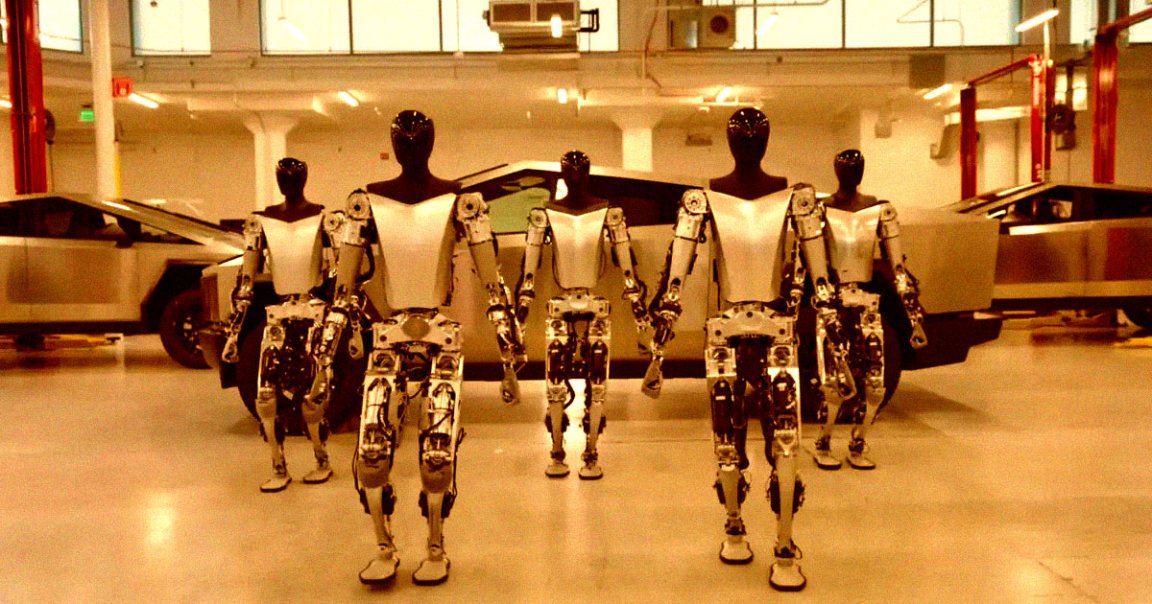
With car sales cratering worldwide, Tesla CEO Elon Musk is desperately looking for alternative areas of growth.
Apart from preparing to launch a fleet of autonomous “Cybercab” robotaxis, the billionaire has promised that an army of Optimus humanoid robots could soon be roaming factory floors, heralding a revolution in manufacturing.
At least, that’s his grandiose vision. Earlier this week, Musk told CNBC that the carmaker will have “thousands of Optimus robots working in Tesla factories by the end of this year, beginning this fall,” a characteristically ambitious timeline that’s likely far removed from reality.
But even the company’s own former executives have some serious doubts about a fleet of bipedal robots as Tesla’s saving grace.
As the EV maker’s first Optimus lead, Chris Walti, who left the firm in 2022, told Business Insider, humanoid robots simply don’t make any sense in such a setting.
“It’s not a useful form factor,” he said. “Most of the work that has to be done in industry is highly repetitive tasks where velocity is key.”
The human form “evolved to escape wolves and bears,” Walti added. “We weren’t designed to do repetitive tasks over and over again. So why would you take a hyper suboptimal system that really isn’t designed to do repetitive tasks and have it do repetitive tasks?”
The little we’ve seen of Tesla’s progress on its Optimus robot has left something to be desired. During Musk’s showy “We, Robot” event in October, the company had the mechanoids converse with and pour drinks for eventgoers. As analysts later confirmed, the robots were being remotely controlled by human workers.
A separate clip shared by Musk early last year, which purported to show an Optimus robot folding a shirt, was also revealed to be the result of similar trickery, with a nearby technician operating it from mere feet away.
Trump’s baffling trade war could also put a major damper on Tesla’s ambitions to build humanoid robots, with Musk complaining that steep tariffs against China could seriously rattle supply chains.
Instead of investigating whether spindly-legged humanoid robots can take over jobs at a car factory, Walti founded a company called Mytra that aims to use flat, rectangular robots to move pallets in warehouses — bodies far removed from those of humans, but specialized to a specific task.
Humanoid robots are an engineering problem that’s “multiple orders of magnitude” more difficult to solve than self-driving cars, Walti told BI.
And considering Tesla still has a long way to go to fulfill Musk’s decade-long promise of realizing a car that can fully drive itself, a fully autonomous Optimus robot would, by that logic, be a very long way off.
Humanoid robots are “kind of a ninth-inning robotics problem, and we’re in the third inning,” Walti told BI.
More on Optimus: Musk Says Trump Preventing Him From Building Legion of Robots